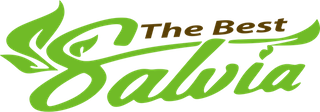Legal status of Salvia Divinorum in US and Europe
Until recently, salvia was a completely an unfettered plant, expert evidence shows that there is no compelling reason for regulation of this herb but despite its lack of realistic reason for regulation, lawmakers worldwide have turned their attention towards salvia due to the fact that it has grown in popularity, demand and gained conventional acceptance. Here is the legal status of salvia divinorum in several countries in the US and Europe you need to look.
Responsible Use
According to some people, Salvia divinorum may be used in a safe and responsible way because it’s known as a non-habit forming herb, not addictive and does not present a significant risk to public health or safety. Because it is a powerful herb that produces hallucinations and alters consciousness, some regulation of sales is appropriate, but criminalizing possession certainly is not. When it comes to regulation, restricting sales would be appropriate, as well as obliging shops to provide user information and warnings with all salvia products.
Legal Status of Salvia Divinorum
Unfortunately, several countries have enacted laws that prohibit possession, sales and importation of Salvia divinorum. In the United States, the Federal Drug Enforcement Agency initiated an evaluation of salvia in 2007. So far has found no cause for scheduling salvia as a controlled substance. However, many U.S. states and many other countries have passed legislation effecting salvia and salvia users. Wherever laws exist concerning Salvia divinorum, they are often new and constantly changing. To governments and law officials, the drug is very new.
Legal Status In US and Europe
Salvia divinorum is uncontrolled in the United States by federal law, but is controlled in some states. This means all parts of the plant and its extracts are legal to cultivate, buy, possess, and distribute (sell, trade or give) without a license or prescription in some states of US. If sold as a supplement, sales must conform to U.S. supplement laws. If sold for consumption as a food or drug, sales are regulated by the FDA. The federal analog act generally requires that, in order to qualify as an analog, a substance must be chemically similar to a substance which is federally scheduled. Salvia Divinorum is a psychoactive plant which is legal in most countries. Exceptions, countries where there is some form of control include Australia, Belgium, Canada, Denmark, Estonia, Finland, Germany, Italy, Poland, Spain, Sweden and the US.
Legal Status in UK and US
In the United Kingdom, a parliament was raised calling for Salvia divinorum to be banned there. However as of April 2016 all legal highs (excluding tobacco and alcohol) have been banned in the UK.
In the United States, Salvia is not regulated under the controlled substance act. Some states, including Delaware, Illinois, Louisiana, Missouri, Virginia, Texas, and others, have passed their own laws. Several other states have proposed legislation against Salvia. These include Alabama, Alaska, California, Florida, Georgia, Iowa, New Jersey, New York, Ohio, Oregon, and Pennsylvania. Many of these proposals have not made it into law, with motions having failed, stalled or otherwise died, for example at committee review stages.
Overall
Salvia cultivation may prove difficult to law enforcement agents as the plant has a nondescript appearance. Unlike cannabis the leaves are not distinctive and it does not have a distinctive odor. Salvia divinorum looks like and can be grown as an ordinary houseplant. That is without the need of special equipment such as hydroponics or high-power lights.
